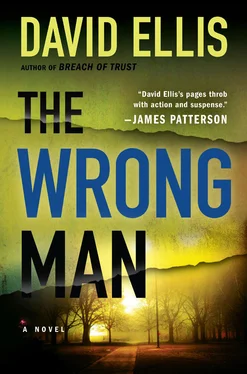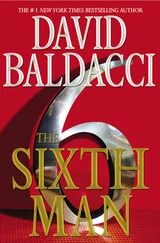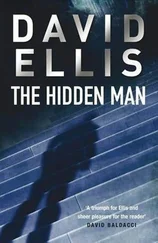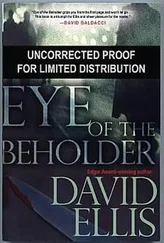David Ellis - The Wrong Man
Здесь есть возможность читать онлайн «David Ellis - The Wrong Man» весь текст электронной книги совершенно бесплатно (целиком полную версию без сокращений). В некоторых случаях можно слушать аудио, скачать через торрент в формате fb2 и присутствует краткое содержание. Жанр: Триллер, на английском языке. Описание произведения, (предисловие) а так же отзывы посетителей доступны на портале библиотеки ЛибКат.
- Название:The Wrong Man
- Автор:
- Жанр:
- Год:неизвестен
- ISBN:нет данных
- Рейтинг книги:3 / 5. Голосов: 1
-
Избранное:Добавить в избранное
- Отзывы:
-
Ваша оценка:
- 60
- 1
- 2
- 3
- 4
- 5
The Wrong Man: краткое содержание, описание и аннотация
Предлагаем к чтению аннотацию, описание, краткое содержание или предисловие (зависит от того, что написал сам автор книги «The Wrong Man»). Если вы не нашли необходимую информацию о книге — напишите в комментариях, мы постараемся отыскать её.
The Wrong Man — читать онлайн бесплатно полную книгу (весь текст) целиком
Ниже представлен текст книги, разбитый по страницам. Система сохранения места последней прочитанной страницы, позволяет с удобством читать онлайн бесплатно книгу «The Wrong Man», без необходимости каждый раз заново искать на чём Вы остановились. Поставьте закладку, и сможете в любой момент перейти на страницу, на которой закончили чтение.
Интервал:
Закладка:
That made sense.
“And he has a general disinterest. He’s fatalistic, in fact, wouldn’t you agree?”
“He told me he didn’t care who his lawyer was, he just wanted this to be over,” I said. “I’ve met with him twice now, and the predominant themes are that he won’t talk about anything related to the night in question or his military experience. And he won’t agree to a continuance of his trial.”
Silence. Lawyers taking in information, processing it, trying to fit it within a legal argument that could save a client. An art, not a science. Facts go in different directions. They don’t necessarily line up in one neat, tidy explanation.
“PTSD,” said Shauna.
I took a breath. “PTSD,” I agreed.
“PTSD, but we need him to fill in some blanks for us,” said the doctor. “Otherwise, I’m testifying in the abstract about that night.”
“Got it.” I breathed out. This was more complicated than I’d expected.
“Your trial date is still December the first?” the doctor asked me.
“Right. For now, at least.”
“Do you have an idea of when you’ll call me to the stand?”
“Right now? Not really. December one is a Wednesday. We’ll pick a jury, then the prosecution’s case will go in over a few days. Less than a week, would be my guess. So I would shoot for… probably the eighth or ninth?”
“Okay, that would work. The seventh wouldn’t.”
I sighed. “Doctor, I need you to be flexible here.”
“This is why I raise this. The seventh I cannot do. I have a religious obligation.”
“Okay, well-what religion is that?”
“Islam,” he said.
“Oh.” That stopped me. “That’s… interesting.”
“Why is that… interesting? Because I’m testifying about a man who served in a military operation that occupies a predominantly Muslim country?”
Something like that, yeah. I’m not good with political correctness. It’s not that I give a rat’s ass about someone’s religion. I’m not even sure how I feel about my own religion. But I’m not good with sensitivity.
Dr. Baraniq laughed at my awkwardness. “You can relax, Mr. Kolarich. Muslims in America learn to have thick skin.”
They’d have to. I remembered when they built that gigantic mosque a couple of miles west of our downtown commercial district. It was billed as the largest mosque in the Midwest. They finished construction in the summer of 2001, only weeks before the September 11 attacks. And to make matters worse, the name of the mosque was Masjid al-Qadir, which bore an unfortunately close resemblance to the name of the terrorist group that attacked us. Back then, when I was a prosecutor and single, I passed the mosque every day on my way to work. There were protests and death threats and daily pickets for months. Finally, the mosque agreed to take down the big sign bearing its name, but they didn’t change the name.
The way it ultimately turned out, the mosque was credited-by those willing to give it any credit-with cleaning up that neighborhood, which had been populated with gangs and drugs and plagued by drive-by shootings. They hold monthly food and clothing distributions and have done a decent job of assimilating.
All of this got me thinking. Dr. Baraniq’s religion could be helpful at trial. If I could somehow sneak in a mention of it during his testimony, it would only bolster his credibility. The last thing a Muslim psychiatrist could be accused of is a bias favoring an American soldier.
He wagged a finger at me. “We need Tom to talk, Mr. Kolarich. He won’t talk to me. He won’t talk to the state’s doctor.” He stared at me.
“You think he’ll talk to me?” I asked.
“He’d better.” Dr. Baraniq lifted his coat off the back of his chair. “Or we have no chance of winning this case.”
9
“The key to this trial is sympathy,” I told the conference room. “Tom Stoller gave everything for his country. It destroyed him. It gave him PTSD, which triggered his schizophrenia. Things went south from there. A tragedy happened. But Tom Stoller is a victim every bit as much as Kathy Rubinkowski.”
“Well, maybe not every bit as much.” This from Joel Lightner, my private detective. His tie was pulled down and his feet were on the table. Joel joins me occasionally for drinks, by which I mean about three times a week. He is a two-time loser at marriage, a rabid skirt-chaser, and a happy drinker.
“What happened to insanity?” Bradley John, our young pup, asked. Unlike Joel, young Bradley was hoping to learn a thing or two.
“Insanity is our legal theory,” I said. “We argue it with everything we have. But it’s a tool. We use it to give the jury his background. To sympathize. So they won’t want to put one of our nation’s brave soldiers in the penitentiary for life. We have to prove insanity by clear and convincing evidence, and I’m not sure I could even get a preponderance. Tom knew right from wrong. He told the victim he was sorry. And he stole her purse, phone, and necklace afterward. So I’m under no illusion that we can make that case. What I do believe is that in the process of attempting to make our case, we put the jury in the frame of mind that they want to acquit.”
“But he was flashing back to Iraq, right?”
Lightner turned his head lazily-read: condescendingly-toward young Bradley. “You think he apologized to the Al Qaeda guerrillas when he shot them?”
“Maybe he did.” Shauna was smartly dressed today for court. Her blond hair, which she’d grown out some, curled around the curves of her face. And she had the naughty-librarian black horn-rimmed glasses that made Joel squirm. “Seriously,” she said. “Maybe he felt bad about killing people. What’s odd about that? I mean, isn’t that why war screws people up so much?”
I raised my hands. “That’s all fine, people. I agree. We use that. We embrace what he told the police in the interview. But at the end of the day, the jury’s looking at an instruction that says that we have to prove that his mental defect prevented him from appreciating that what he did was a crime. We have to make them disregard the law and walk him because they view him as a victim.”
I paced the room for a while. I would have preferred to have a football in my hand, but I’d misplaced it in my office. “Joel,” I said. “I need fresh interviews on everybody who served with Tom overseas. I need someone to testify about what kinds of things happened over there. And anything specific to Tom. If Tom won’t tell us, maybe they will. Hopefully-and I can’t believe I’m saying this-hopefully he killed some people over there.”
“And I assume the home run would be if he killed a woman in her twenties while she pulled a gun on him after getting out of her car?”
“Yeah, Joel, that’d be super.” It was a reminder of what a stretch this case would be. PTSD flashbacks, according to Dr. Baraniq, were typically spurred by circumstances similar to the traumatic event in your past. It was hard to see how encountering a petite, well-dressed young woman could have flashed Tom Stoller back to Iraq. But it was all we had.
“Bradley,” I went on. “Hit the books. I want every court decision ever published on PTSD. The PD’s office did some research, but I want you to double-check it. I want to know what factors can vitiate the defense, the use of hypotheticals versus actual firsthand accounts, anything. I want examples where the defendant refused to talk about the event but still managed to pull this off. Keep in mind some jurisdictions follow M’Naughten or irresistible impulse, not the modified ALI. Preferably, I want something on point in a jurisdiction following ALI like us. But I’m not greedy.”
“Got it. Got it.” Bradley seemed pumped for this case.
Читать дальшеИнтервал:
Закладка:
Похожие книги на «The Wrong Man»
Представляем Вашему вниманию похожие книги на «The Wrong Man» списком для выбора. Мы отобрали схожую по названию и смыслу литературу в надежде предоставить читателям больше вариантов отыскать новые, интересные, ещё непрочитанные произведения.
Обсуждение, отзывы о книге «The Wrong Man» и просто собственные мнения читателей. Оставьте ваши комментарии, напишите, что Вы думаете о произведении, его смысле или главных героях. Укажите что конкретно понравилось, а что нет, и почему Вы так считаете.












